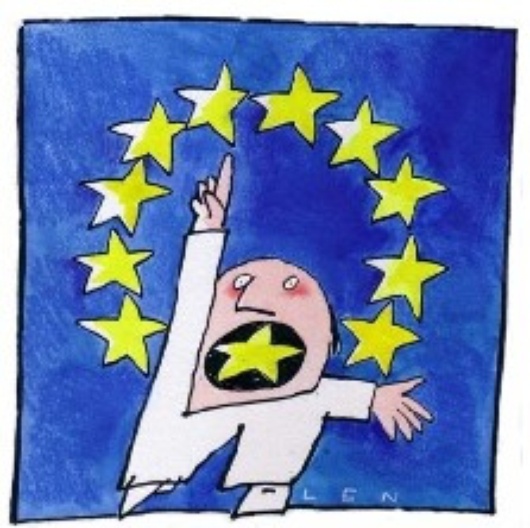The European Citizen Initiative (ECI) ..........paradigm shift or blowing in the wind? by Nicoleta Sovre, MA University for Peace (Costa Rica)
Published on
“signature collection rules which vary significantly between countries and a too-short deadline will make it difficult for an ECI to succeed. A ban on treaty amendments and unclear Commission response to a successful ECI will discourage ECIs on many of the most important topics facing the EU. Unless these are changed, the ECI could become a PR tool rather than a real democratic instrument.
” (Carsten Berg, ECI Campaign Coordinator)
The European Citizen Initiative (ECI), having its legal framework set in Article 11, Paragraph 4 of the Treaty of the European Union (TEU)and Article 24, paragraph 1 of the Treaty on the Functioning of the European Union (TFEU), is designed to become the bridge between EU citizens and the EU agenda and aims at diminishing the EU's democratic deficit. More exactly, as stated in the Lisbon Treaty, it enables one million citizens, from a significant number of member states to challenge the legislation of the European Commission and to speak out their requests. Still, the ECI seems to be more hot air as European political decisions up to now are much more influenced by states, companies and lobbyists than by the european citizens. On March 31st 2010m a draft regulation, which encompasses practical aspects, on the ECI was adopted. That draft is now being negotiated with Council and the European Parliament....Deadline: December 13th.

So, what's at stake? Institutions trying to pass rules that would diminsh citizens involvement........now, that's pretty clear. On the ground, this translates into how many member states constitute a significant number. The answer of the Commission is at least nine member states while the Parlament answered five member states. Regarding checking admissibility of the initiatives and how long organisers should have to collect signatures, the Commission and Council plan calls for a 12-month limit, while MEPs have called for between 18 and 24 months. Again, the MEP seems to be the good guy as it doesn't support Council's idea requiring citizens to identify themselves before they sign. According to the press released by the ECI on Monday November 29th, the ECI is at risk of becoming an instrument of: de-facto discrimination based on nationality, artificial restriction of citizens’ initiative rights going as far as even not to be used.
It goes beyond the purpose of this text to cover implications of the ECI, such as what shall happen if there is a petition of the majority asking for abusive measures against any unconfortable minorities and where to draw the human rights line. However, I believe that before signing or not signing the petition, it is worth considering a 'what' happens 'if'.....or 'if'........
by Nicoleta Sovre, MA University for Peace (Costa Rica)



